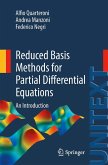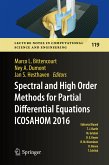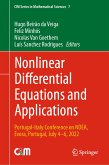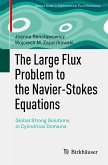The goal of this monograph is to develop a mathematical theory of open fluid systems in the framework of continuum thermodynamics. Part I discusses the difference between open and closed fluid systems and introduces the Navier-Stokes-Fourier system as the mathematical model of a fluid in motion that will be used throughout the text. A class of generalized solutions to the Navier-Stokes-Fourier system is considered in Part II in order to show existence of global-in-time solutions for any finite energy initial data, as well as to establish the weak-strong uniqueness principle. Finally, Part III addresses questions of asymptotic compactness and global boundedness of trajectories and briefly considers the statistical theory of turbulence and the validity of the ergodic hypothesis.
Dieser Download kann aus rechtlichen Gründen nur mit Rechnungsadresse in A, B, BG, CY, CZ, D, DK, EW, E, FIN, F, GR, HR, H, IRL, I, LT, L, LR, M, NL, PL, P, R, S, SLO, SK ausgeliefert werden.









